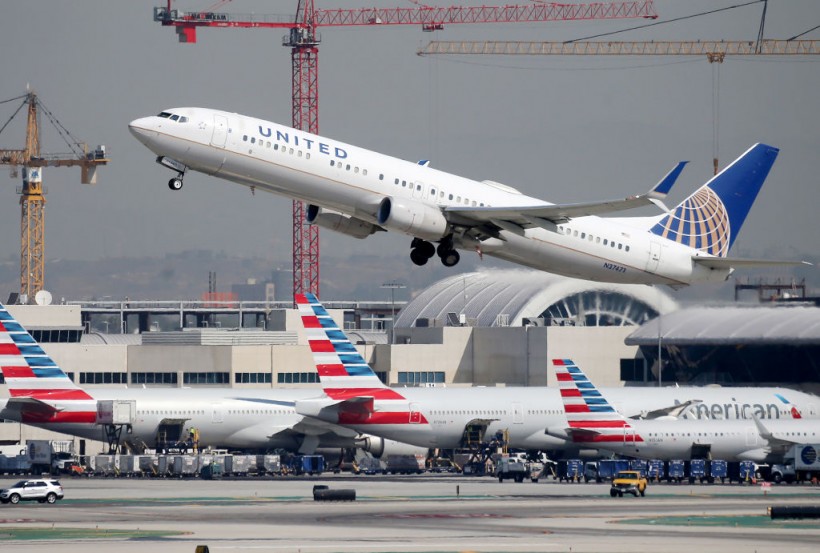It has been a year since the first appeals by airline companies to the Federal Aviation Authority (FAA) regarding the 5G interference that affects instruments, gauges, and the like on airplanes. But the FAA remains firm on its stand with 5G in airports and nearby areas and wants airline companies to adjust their altimeters and the like to adhere to this new connection in one year.
Previously, there were appeals to remove 5G in airports, mainly with its signal towers that affect aviation operations but were unsuccessful in their attempts.
FAA 5G: Airlines Given a Chance to Adhere for Another Year

(Photo : Mario Tama/Getty Images)
The FAA released a notice of proposed rulemaking (NPRM) to all airline companies and gives them another year to adhere to the presence of 5G in airports. The document shows that the companies have until February 1, 2024, to replace or fix their aircraft's altimeters to work together with 5G, to avoid any problems moving forward.
According to its statement, "estimates that approximately 180 airplanes would require radio altimeter replacement and 820 airplanes would require addition of radio altimeter filters to comply with the proposed modification requirement."
This is out of 7,993 airplanes on the FAA's registry, with the total cost to replace it, is at approximately $26 million.
Read Also: FAA: AT&T and Verizon's 5G C-Band May Ground Medevac Helicopters; Wireless Service Starts Jan. 19
FAA and 5G Won't Adjust to Airlines
Ars Technica reported that the FAA's extension only shows that it is firm on its ground regarding the. 5G C-Band spectrum rollout from AT&T and Verizon. It already saw delays on the 5G expansion in specific airports, and this period of adjustment will give them ample time to adhere to this, or future operations may be at stake.
5G Interference
The FAA previously said that it is safe to operate near 5G spectrums present near airfields, airports, and places where planes fly in and out, particularly for small aircraft. The agency also affirms that there are other airports and countries that have 5G and its airline companies have no problem with its operations, unlike here in the United States.
To be fair, this is new for US-based airlines to experience, and it may mean that they are not yet ready for this transition to co-exist with 5G yet.
Additionally, the FAA released several warnings for large aircraft like the Boeing 737 to see issues with 5G, but its answer to it is for airlines to be ready and adjust accordingly.
At the present, 5G is the standard of mobile cellular data connections in the world, and this means that people venturing to the airport would also use this, as well as airport and airline personnel. And while interference would not be avoided, the FAA set up buffer zones, and another one-year period for airline companies to adjust and make it so to adhere to this mandate.
Related Article: FAA, Verizon, AT&T 5G: Airport Buffer Zone Expansion the Answer to Interference? What do Airlines Say?










